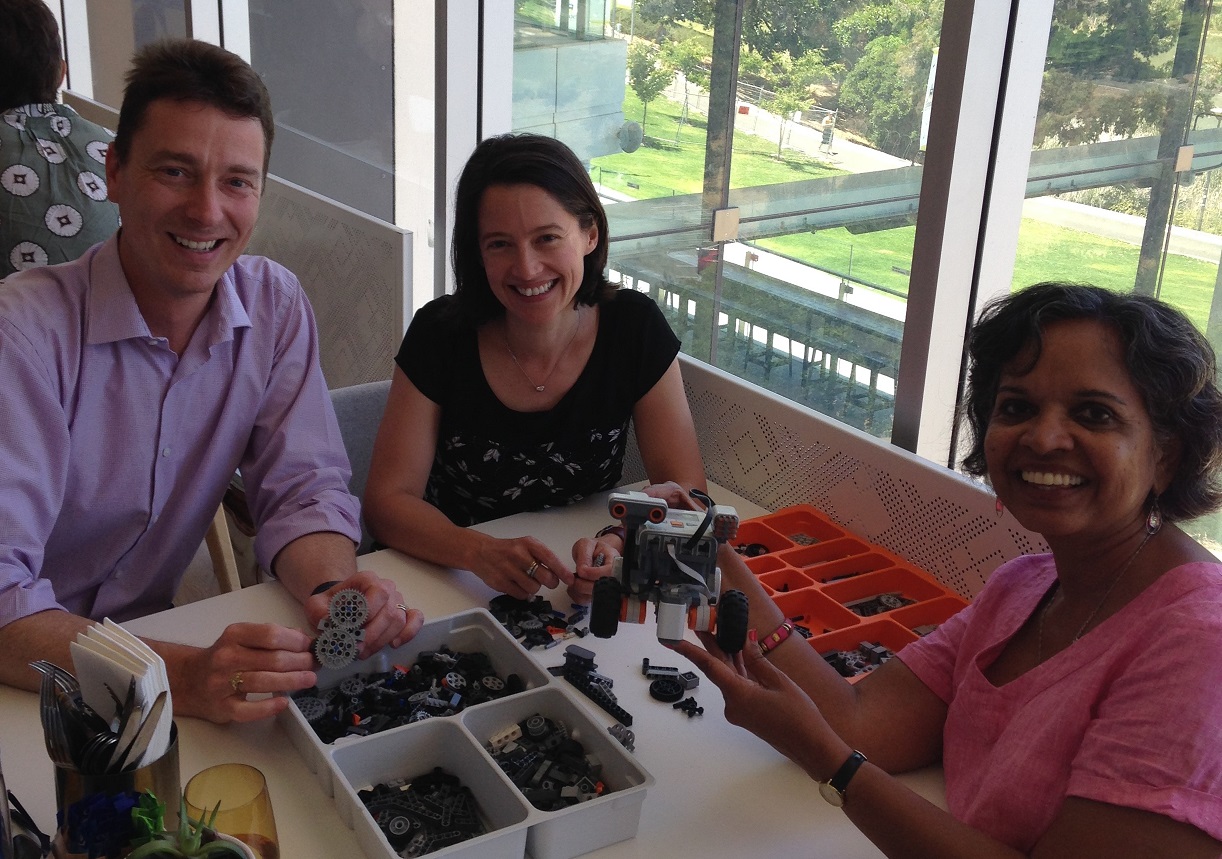
Researchers from Flinders University’s Caring Futures Institute will partner with Autism SA to investigate whether LEGO® robotics therapy can reduce anxiety and increase social skills in teenagers on the autism spectrum.
LEGO® therapy uses a child’s natural interest to motivate learning and to encourage collaboration with others to build a LEGO® set, using skills in communication, problem solving, negotiating, turn-taking and cooperation.
Supported by a grant from Channel 7’s Children’s Research Foundation, Associate Professor Pammi Raghavendra, Associate Professor Belinda Lange and Dr David Hobbs from Flinders will collaborate with Niki Welz of Autism SA and Associate Professor David Trembath of Griffith University on the two-year project.
Associate Professor Raghavendra said the research project came about after Autism SA highlighted the success of their existing LEGO® therapy program with younger children and wanted to develop something for teenagers. With a background in speech pathology, Associate Professor Raghavendra was immediately interested in the communication and social improvements LEGO® therapy was achieving.
“Despite promising findings with younger children, the use of LEGO® therapy to improve anxiety and social skills for teenagers with autism has not yet been investigated extensively,” Associate Professor Raghavendra said.
The research team hopes the addition of robotics – programming the LEGO® creation to interact and move using a tablet-based app – will make the activity to be more challenging, engaging and age-appropriate for teenagers.
“By researching and developing a new type of intervention, we’re aiming to give parents, teachers and allied-health professionals a new tool in their toolkit, and to give teenagers an activity that they enjoy, and which may have benefits for their mental health as well.
“Nearly 40% of children and adolescents on the autism spectrum experience mental health issues such as social anxiety and difficulties with interactions, which has a significant effect on everyday participation, including attending school, meeting friends, and using public transport.”
“This is a great example of the way in which the Caring Futures Institute is seeking to improve lives, increase wellbeing and contribute to better communities.”
As well as quantitatively measuring participants’ levels of anxiety, social skills, and motivation and engagement, researchers will gather the views and perceptions of the teenagers, their caregivers, education staff and facilitators of the LEGO® robotic therapy, which will provide valuable information for future research.
Based on this study, the team will produce a training manual and resource kit to support school staff, students with autism and families who might be interested in implementing the LEGO® robotics therapy at their school, home or in the community.
Associate Professor Raghavendra said the ultimate outcome would be for LEGO® programs to be readily accessible throughout the community, for all children and teenagers – with or without autism – to build their creations together.

